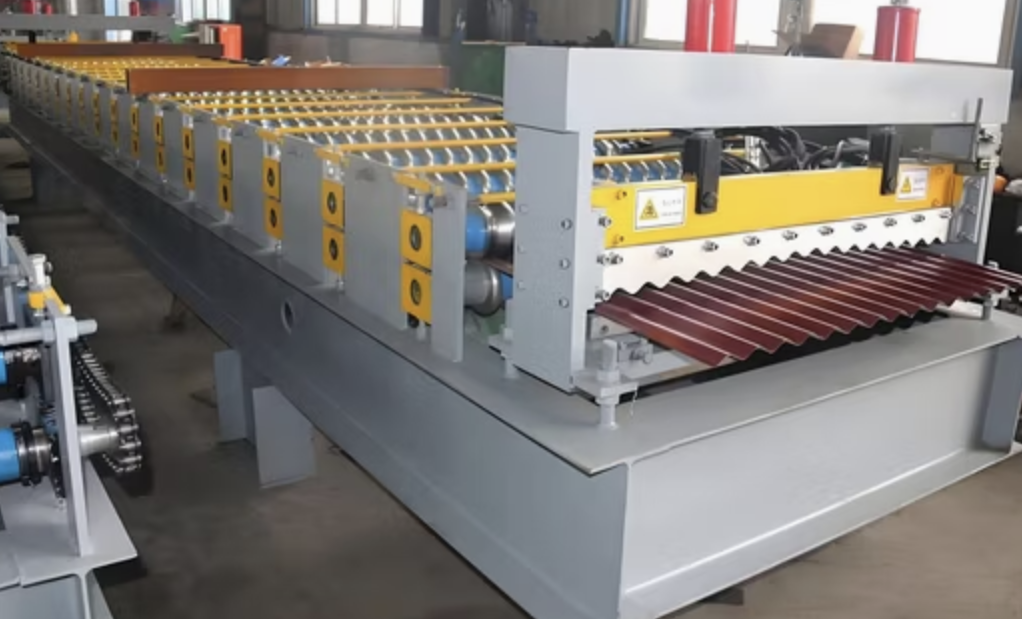To express an interest in this machine please submit the form below.

Not Sure What Machine You Need?
Select Your Profile, We'll Match It
Choose your desired profile drawing, and let Machine Matcher connect you with the best roll forming machine tailored to your needs.
Browse Profiles
A Metal Roof Roll Forming Machine is an essential tool in the construction and roofing industry, designed to produce high-quality metal roofing panels efficiently and consistently. These machines transform metal coils into roofing profiles by feeding the coil through a series of rollers that shape it into the desired profile. This process allows for precise, continuous production, making it ideal for high-demand projects in residential, commercial, and industrial applications.
Metal roof roll forming machines come in various configurations to produce different types of roofing profiles, such as corrugated, trapezoidal, and standing seam panels. They are equipped with advanced features like hydraulic cutting, PLC control systems, and automated stacking, making them versatile and easy to operate.
Here’s a breakdown of the key specifications and features of a standard metal roof roll forming machine:
A: Metal roof roll forming machines can produce several profile types, including trapezoidal, corrugated, standing seam, and tile roofing profiles. Each profile serves different structural and aesthetic purposes.
A: Start by considering the type of profile you need, the production speed, and the material thickness. If you plan on high-volume production, look for a machine with a high-speed output and a durable hydraulic cutting system. Additionally, verify that the machine supports the material gauges and widths required for your projects.
A: Yes, many roll forming machines can be customized or adjusted to produce specific profiles. Some manufacturers offer customization options for roller shapes and sizes to meet unique profile requirements.
A: Regular maintenance includes lubricating moving parts, cleaning the rollers, and inspecting the PLC system for functionality. It's also essential to check hydraulic fluid levels, examine the cutting blades for sharpness, and inspect the rollers for any signs of wear.
A: Setup times vary depending on the machine's complexity, but generally, it takes around 1-2 hours to install and configure a metal roof roll forming machine. Machines with automated uncoilers and stackers may take slightly longer due to additional connections.
A: Power requirements depend on the motor specifications and production speed. Standard machines require three-phase power, typically between 380V to 440V, with a total power capacity of 10-25kW.
A: Yes, most metal roof roll forming machines are versatile and can process various metals, including galvanized steel, aluminum, copper, and stainless steel. It’s important to check the material specifications to ensure the machine can handle the required gauge and type.
A: While these machines are user-friendly, basic training is recommended, especially for operating the PLC system and understanding safety protocols. Many manufacturers offer training sessions upon installation.
A: Prices vary based on the machine’s speed, features, and customizations. Basic models start at around $20,000, while high-speed or customized machines can exceed $100,000.
A: Yes, many upgrades are available, such as automated stackers, remote PLC control, and advanced cutting systems. These extras improve efficiency and ease of use, particularly for large-scale production needs.
Copyright 2026 © Machine Matcher.